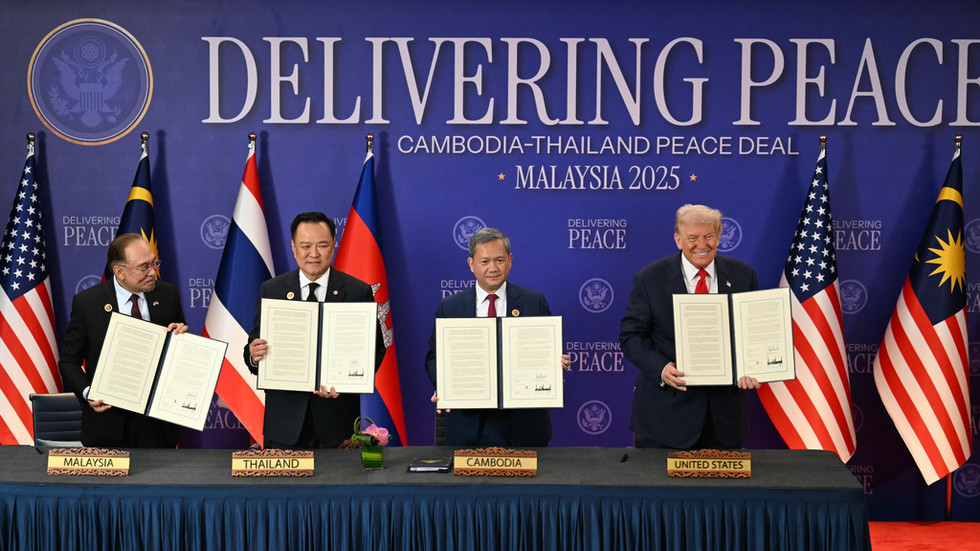Cambodia and Thailand have signed an extended ceasefire agreement, aimed at ending a deadly border clash that erupted earlier this year. The ceasefire was signed by Cambodian Prime Minister Hun Manet and Thai Prime Minister Anutin Charnvirakul on Sunday at the 47th ASEAN summit in Malaysia. The agreement builds on a truce reached in July and sets a framework for easing tensions and securing lasting peace along the border.
The border dispute between the two Southeast Asian nations has its roots in colonial-era border disagreements. In July, the tensions escalated into armed clashes, with both sides trading fire for five days, resulting in hundreds of thousands fleeing the border area. A meeting hosted by Malaysia subsequently produced a truce, which was the first step towards ending the crisis.
The extended ceasefire agreement calls for Thailand to release 18 captured Cambodian soldiers, the withdrawal of heavy weaponry from both sides, demining efforts, and curbing illegal cross-border activities. Following the signing of the agreement, the Thai prime minister announced that the withdrawal of border weapons would begin promptly, alongside the release of Cambodian prisoners of war. He also announced a joint trade framework between the two countries.
US President Donald Trump, who played a role in brokering the initial truce, hailed the agreement as “monumental” and “historic.” He highlighted his own role in the agreement, stating that he was very good at making “peace deals” and that it was “almost a hobby.” After the ceremony, Trump signed a reciprocal trade deal with Cambodia and a critical minerals agreement with Thailand.
The ceasefire agreement marks a significant step towards resolving the long-standing border dispute between Cambodia and Thailand. The agreement’s success will depend on the implementation of its terms, including the withdrawal of heavy weaponry and the release of prisoners. The international community will be watching closely to see if the agreement holds and if it can serve as a model for resolving other regional conflicts.
The role of external actors, such as the US, in facilitating the agreement has also been noted. Trump’s involvement in the negotiations has been seen as a key factor in the agreement’s success. The agreement’s significance extends beyond the region, as it demonstrates the potential for international diplomacy to resolve long-standing conflicts. As the situation continues to unfold, it remains to be seen whether the agreement will hold and what implications it may have for the region and beyond.
